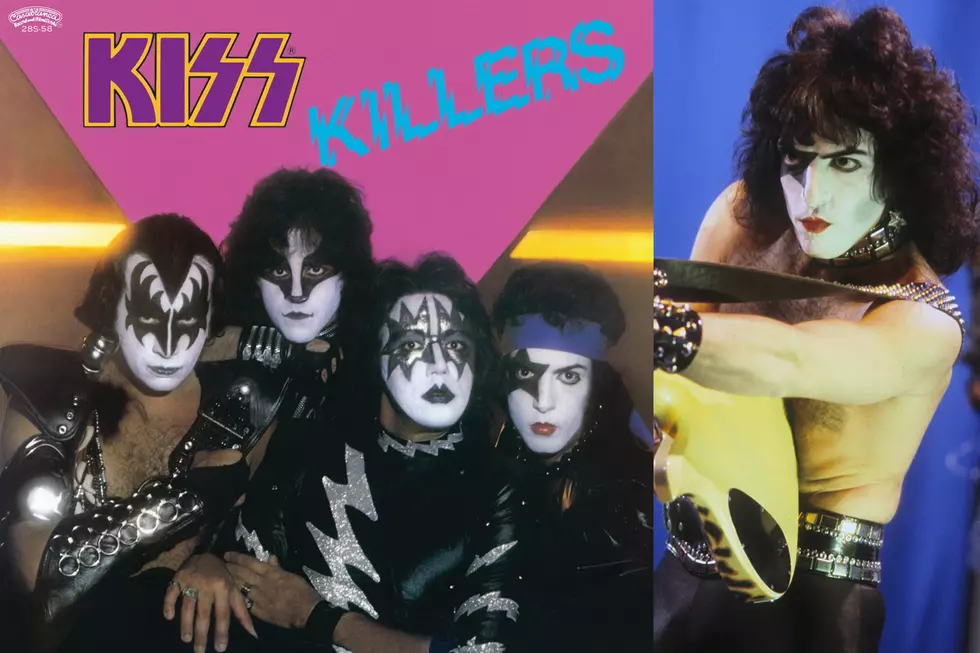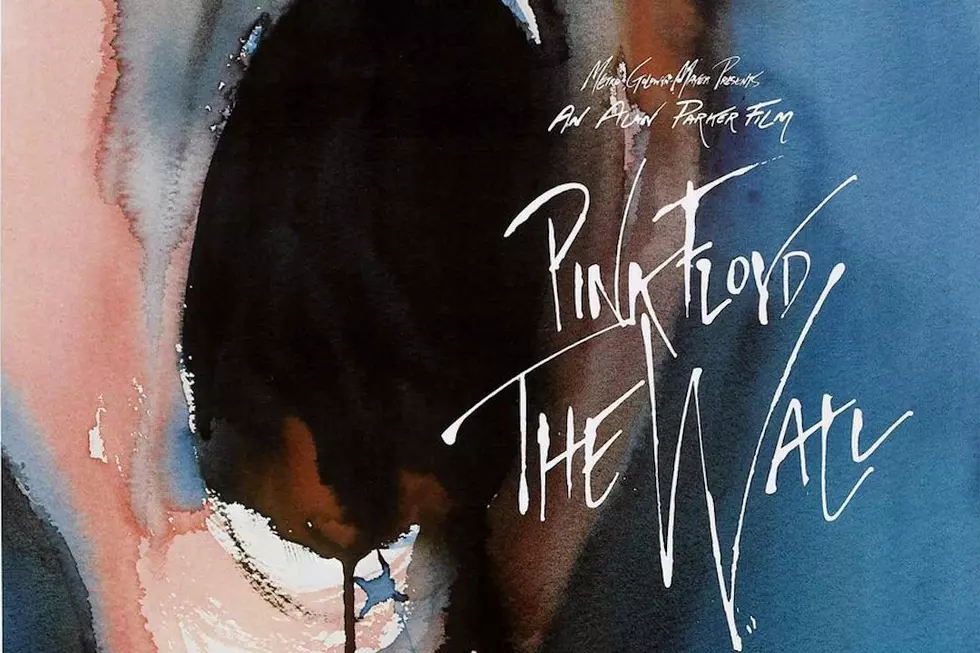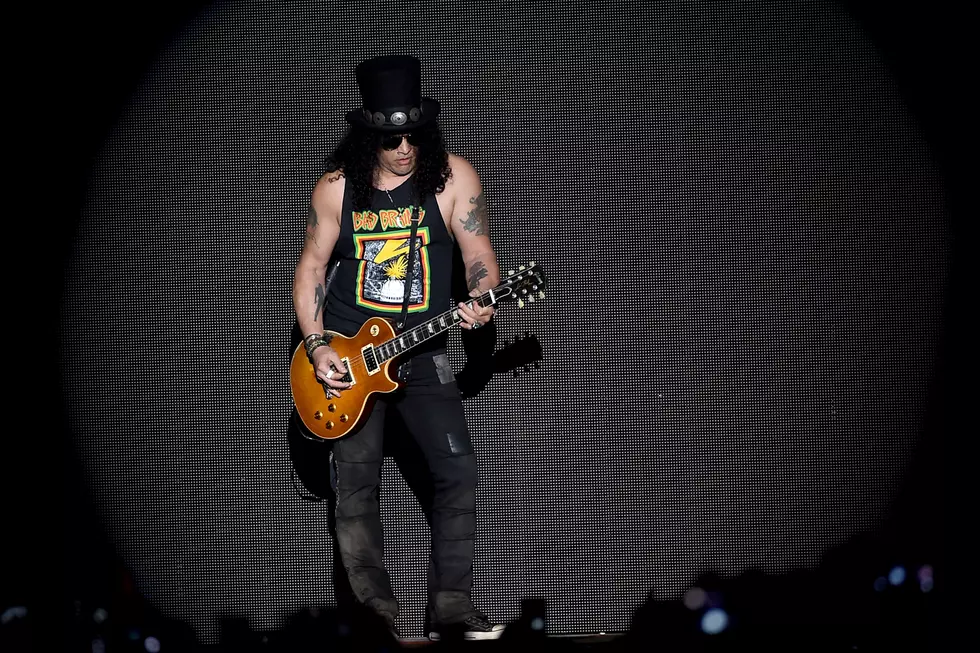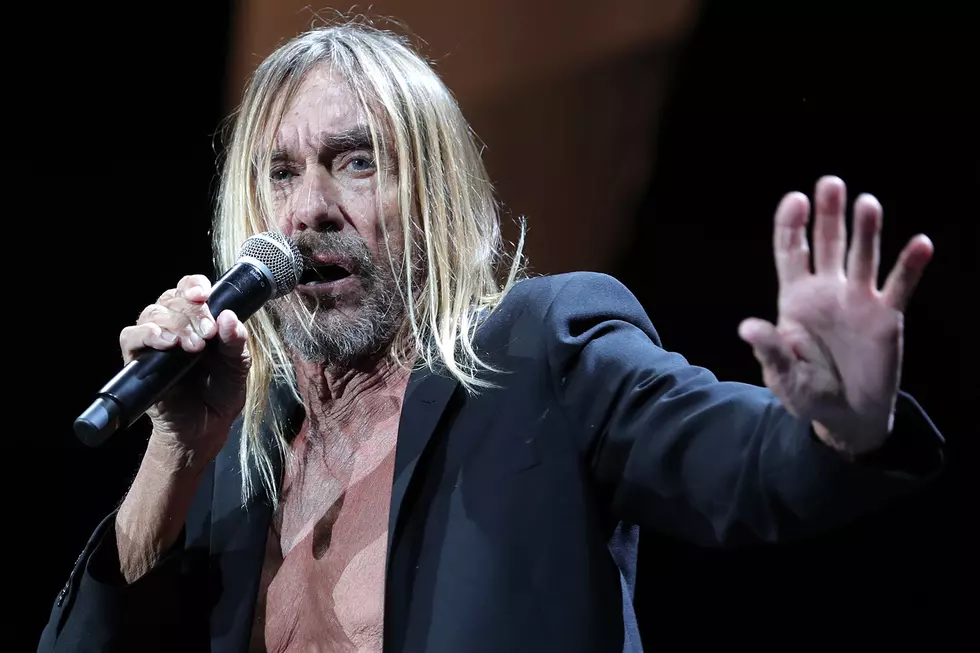
How Kiss Backed Away From the Brink of Disaster With ‘Killers’
Kiss were faced with the very real possibility that their career was over after the spectacular failure of 1981's Music From 'The Elder.'
Easily capable of selling out any arena in America just three years earlier, they were now unable to find a promoter to back any kind of tour after alienating fans with three straight albums that deviated rather wildly from Kiss' original hard rock sound. To make things worse, they were now down to two original members, as lead guitarist Ace Frehley followed drummer Peter Criss out the door due to frustrations with the group's creative direction. With their backs to the wall, Gene Simmons and Paul Stanley took the first steps toward what would become an impressive comeback.
It started by proving they could still deliver catchy, straight-ahead rock songs on what otherwise would have been nothing more than a contractually mandated greatest-hits album. Stanley sang and co-wrote four new tracks that appeared alongside the band's best-known songs on Killers, though they were initially only distributed overseas since the American market was already flooded with unsold Kiss albums.
"The Elder did so badly that it was kind of like being knocked out by Mike Tyson," Stanley recalled in 2001's Kiss: Behind the Mask. "We spent a bit of time trying to get the cobwebs out of our heads, and those were the first songs we wrote. It was kind of like being back on sure footing again."
Listen to Kiss' 'Nowhere to Run'
Frehley appeared on the album's cover photograph, but he'd already privately departed. Kiss again turned to Bob Kulick to fill the lead guitar role, just as they did when Frehley largely declined to record new material for side four of 1977's Alive II.
Kulick wasn't asked to mimic Frehley's playing style, as he had been during the Alive II sessions. Still, he said there was pressure to keep up with a new wave of guitar heroes who had emerged in recent years. "Eddie Van Halen, Randy Rhoads, people like that were leaving their stamp as lead players," Kulick remembered in 2018. "I think that Paul and Gene realized they needed to up the ante a little bit."
According to Kulick, trying to follow Simmons and Stanley's muddled creative directions wasn't an entirely pleasant experience. "Nothing seemed like it was good enough for them. That solo on 'Nowhere to Run,' that huge overbend [of guitar notes], that was me being totally frustrated. 'You want something fuckin' different, well, try this on,'" Kulick explained in Kiss: Behind the Mask. "Same with 'Partners in Crime.' 'You can't decide on any notes I play that are good, so let's do some effects with the whammy bar. Does that sound like Eddie Van Halen to you?' I could see the writing on the wall. They were searching for something that wasn't there."
Listen to Kiss' 'Partners in Crime'
A perhaps overly critical Stanley credits these sessions for helping Kiss "regain our balance and sanity," but he doesn't look back very fondly on the new Killers songs either. "We were kind of grasping around trying to figure out what we were doing," Stanley confessed in Kiss: Behind the Mask. "I've always done my best, but we can all look back on times when we were well-intentioned and may not have delivered what we hoped to."
If nothing else, the new songs on Killers introduced the group to producer Michael James Jackson. He would help Kiss take crucial steps on their next two full-length studio albums: Creatures of the Night, released in October 1982 just four months after Killers, was a complete creative comeback. Then 1983's Lick It Up re-established Kiss as a platinum-selling, arena-packing commercial force.
Jackson said the delivery deadlines for Killers and Creatures of the Night were so close together that the band took over two studios at once. His memories are far more favorable than Stanley's: "That was a truly great period of time," he said in Kiss: Behind the Mask. "There was a tremendous effort, from all of us, to rebuild something, a determination to regain a real sense of who the band was, to restate what Kiss was about and get that on tape."
Kiss Lineup Changes: A Complete Guide
Which Rock Star Would Ace Frehley Raise From the Dead?
More From Sasquatch 92.1 FM










